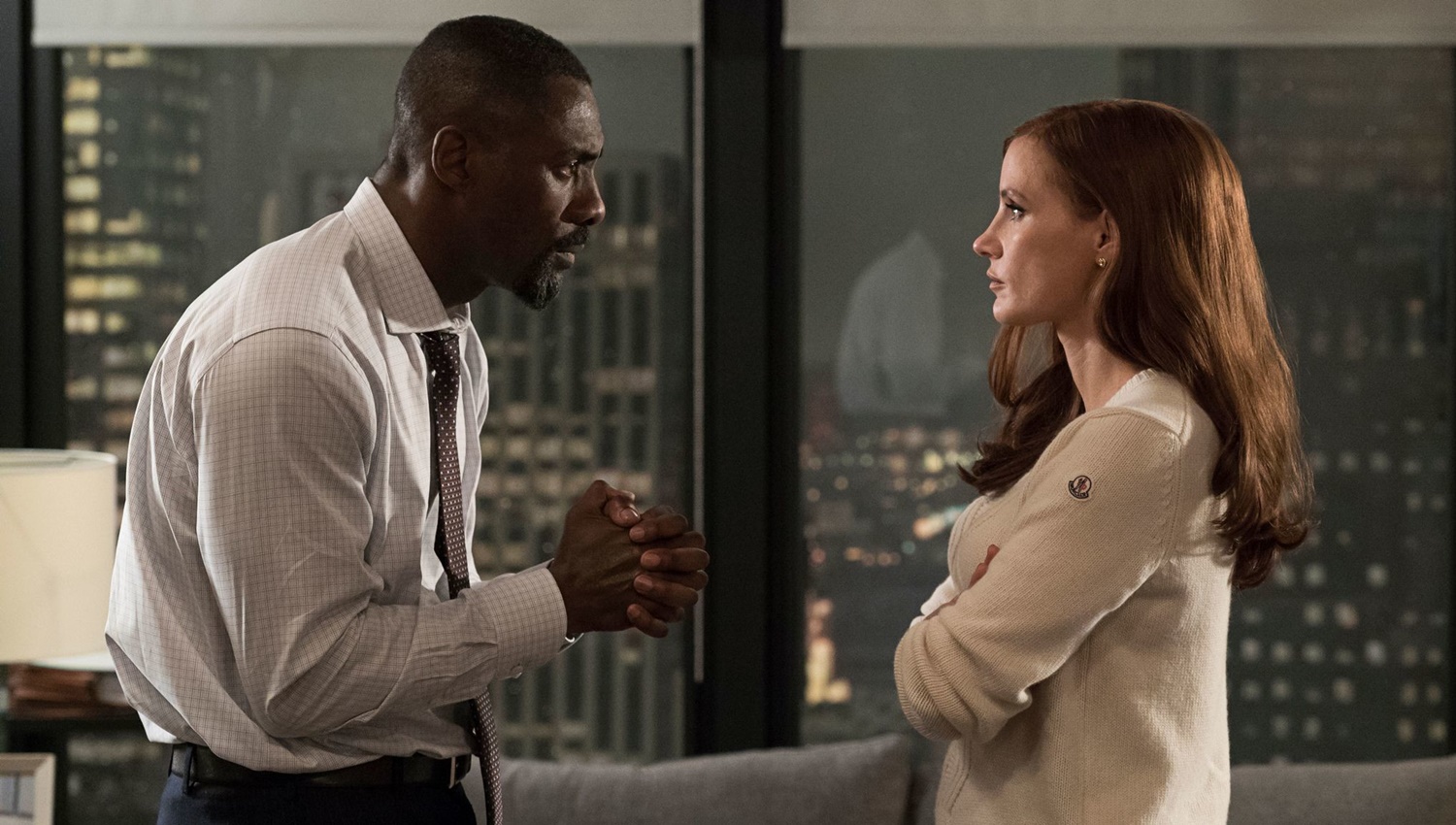
Molly’s Game
Dustin Chase
There are striking similarities between Chastain’s Miss Sloane from last year, and her buzzy new film Molly’s Game. Both leading characters are unapologetic, powerful and in control of the men around them, while being investigated for illegal activity. Oscar winning screenwriter Aaron Sorkin (The Social Network) makes his directorial debut here with a fast talking, energetic true story that has Chastain dressed in Louis Viton heels, as she proves there are far worse things than coming in 4th at the Olympics. The film runs too long and throws so much information, characters, and lingo at the audience, it’s difficult to keep up in the first hour. It’s the last hour, when things come together emotionally, something that seems difficult for Sorkin. The backstory catches up with the present and when old wounds are exposed this poker thriller almost manages to seal the deal.
Molly Bloom (Chastain) was a former Olympian who walked away from competitive skiing, a career in law, and a variety of other career paths to become the highest stakes poker game runner in the world. “You can’t tell who is in with the Russian’s,” she admits to her lawyer Charlie Jaffey (Elba). Bloom was arrested on illegal gambling charges, but more importantly she’s being targeted by the government to fork over information on the mob. Her thirst to hold power and leverage over powerful men eventually leads her to make mistakes. There is nothing more important than her name, and as she admits, she only has one, refusing to hide the truth, no matter how much deeper it brings her.
This role might seem more monumental if we hadn’t seen Chastain performing in nearly the same expensive heels and attitude in Miss Sloane
Molly’s Game is more talk than anything else, actually its more voice over than anything else. There is no way to show you all the information, so we have to simultaneously watch and listen. Those comparing it to a female Goodfellas or Erin Brockovich, need to revisit those films. It’s Elba (The Dark Tower, Beast of No Nation) and Costner (Hidden Figures, McFarland USA) who have the surprisingly, more memorable, albeit, supporting roles. Elba’s big moment occurs in a private deposition where television fans of Sorkin’s work will appreciate the sharp monologue. The scene that that gives purpose to much of the first half’s cold nature, happens when Costner and Chastain are on screen for the one and only time.
The back and forth, past to present, keeps your attention, but it’s exhausting because you have to try so hard to understand all the pieces. The editing could have been much tighter, it’s snazzy, but there is a difference. Molly’s Game could learn a thing or two from I Tonya‘s editing and the running length could be trimmed. I don’t like how the narrative arrives at the conclusion, but it’s the third act that makes Molly’s Game worthwhile. Sorkin is the kind of writer that needs an oppositional director to balance out his work. Having full control here as director, could be why this movie feels like it’s missing something. Molly Bloom is a unique, admirable, multi dimension character that we don’t see often enough in the driver’s seat. Chastain does as much narration here as she does scene performing, which doesn’t help all the information that’s chocked at the viewer. Chastain has graduated from actress to inspirational women’s icon. This character was an obvious choice for her, and she ignites every screen she’s on. While both of her roles in 2017 put historic women on the big screen, neither are close to her most powerful performances.
Final Thought
Chastain gives a tough, but familiar performance, while Elba casually steals the show on the acting front.
